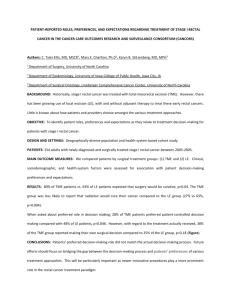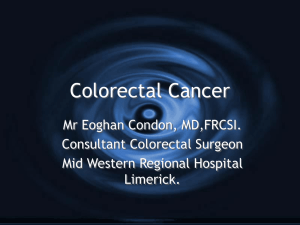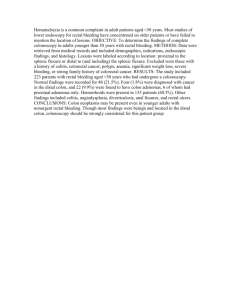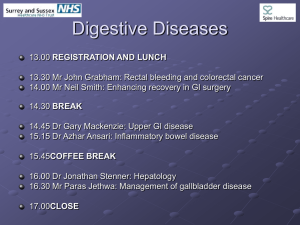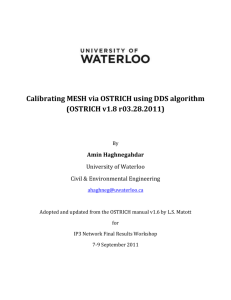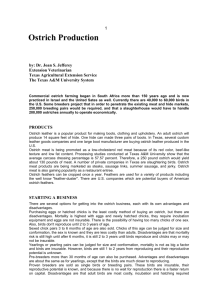Luis_Hernandez_OSTRiCh_abstract_for_DC_ACS
advertisement
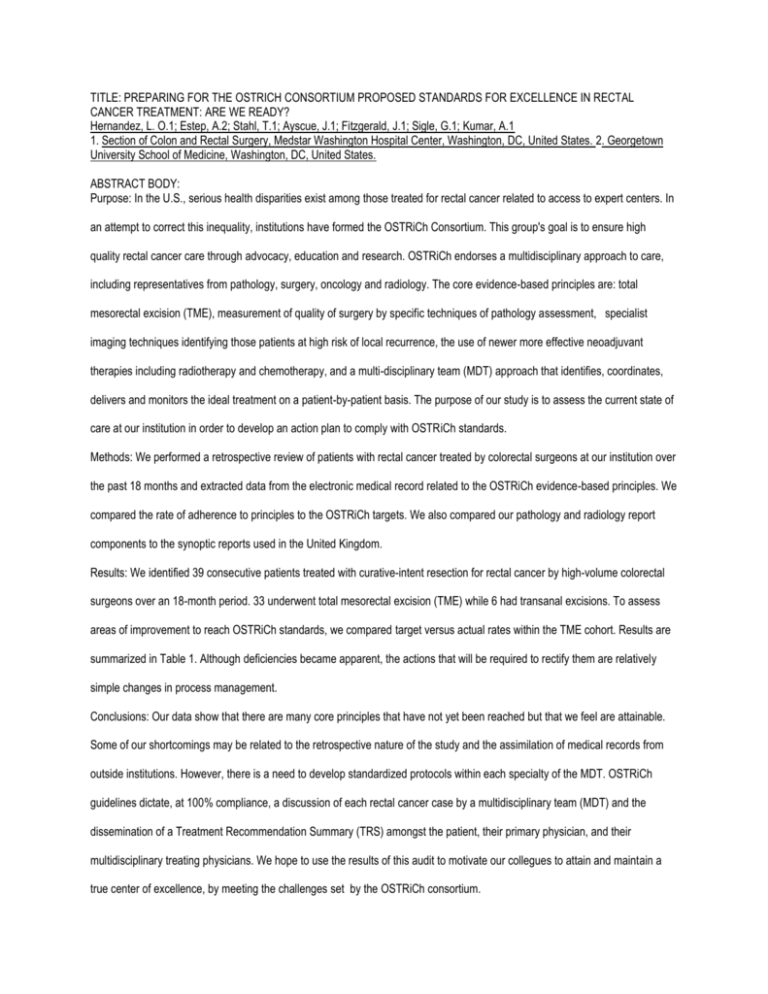
TITLE: PREPARING FOR THE OSTRICH CONSORTIUM PROPOSED STANDARDS FOR EXCELLENCE IN RECTAL CANCER TREATMENT: ARE WE READY? Hernandez, L. O.1; Estep, A.2; Stahl, T.1; Ayscue, J.1; Fitzgerald, J.1; Sigle, G.1; Kumar, A.1 1. Section of Colon and Rectal Surgery, Medstar Washington Hospital Center, Washington, DC, United States. 2. Georgetown University School of Medicine, Washington, DC, United States. ABSTRACT BODY: Purpose: In the U.S., serious health disparities exist among those treated for rectal cancer related to access to expert centers. In an attempt to correct this inequality, institutions have formed the OSTRiCh Consortium. This group's goal is to ensure high quality rectal cancer care through advocacy, education and research. OSTRiCh endorses a multidisciplinary approach to care, including representatives from pathology, surgery, oncology and radiology. The core evidence-based principles are: total mesorectal excision (TME), measurement of quality of surgery by specific techniques of pathology assessment, specialist imaging techniques identifying those patients at high risk of local recurrence, the use of newer more effective neoadjuvant therapies including radiotherapy and chemotherapy, and a multi-disciplinary team (MDT) approach that identifies, coordinates, delivers and monitors the ideal treatment on a patient-by-patient basis. The purpose of our study is to assess the current state of care at our institution in order to develop an action plan to comply with OSTRiCh standards. Methods: We performed a retrospective review of patients with rectal cancer treated by colorectal surgeons at our institution over the past 18 months and extracted data from the electronic medical record related to the OSTRiCh evidence-based principles. We compared the rate of adherence to principles to the OSTRiCh targets. We also compared our pathology and radiology report components to the synoptic reports used in the United Kingdom. Results: We identified 39 consecutive patients treated with curative-intent resection for rectal cancer by high-volume colorectal surgeons over an 18-month period. 33 underwent total mesorectal excision (TME) while 6 had transanal excisions. To assess areas of improvement to reach OSTRiCh standards, we compared target versus actual rates within the TME cohort. Results are summarized in Table 1. Although deficiencies became apparent, the actions that will be required to rectify them are relatively simple changes in process management. Conclusions: Our data show that there are many core principles that have not yet been reached but that we feel are attainable. Some of our shortcomings may be related to the retrospective nature of the study and the assimilation of medical records from outside institutions. However, there is a need to develop standardized protocols within each specialty of the MDT. OSTRiCh guidelines dictate, at 100% compliance, a discussion of each rectal cancer case by a multidisciplinary team (MDT) and the dissemination of a Treatment Recommendation Summary (TRS) amongst the patient, their primary physician, and their multidisciplinary treating physicians. We hope to use the results of this audit to motivate our collegues to attain and maintain a true center of excellence, by meeting the challenges set by the OSTRiCh consortium.




